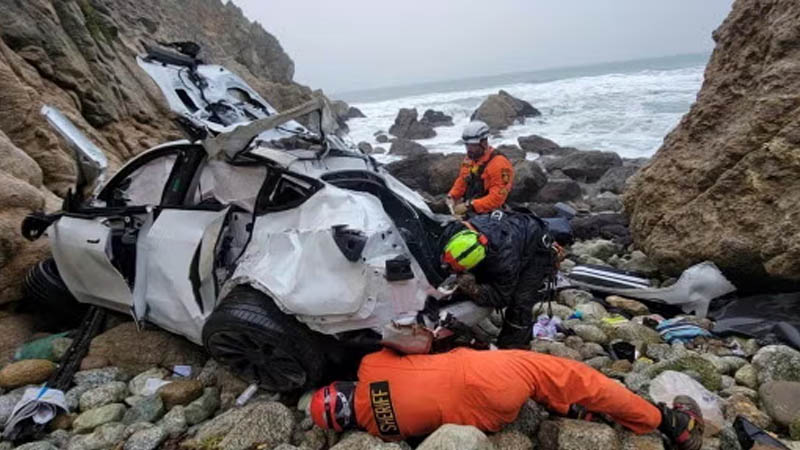In a controversial decision, Dharmesh Patel, a 42-year-old California radiologist accused of driving his car off a 330-foot cliff with his family inside, will not face trial. Instead, he has been granted a mental health diversion due to his diagnosis of major depressive disorder, according to the San Mateo County District Attorney’s Office.
Patel, who has pleaded not guilty to three counts of attempted murder, was involved in a harrowing incident early last year when he allegedly drove off the Pacific Coast Highway at Devil’s Slide. His wife and two children, aged 4 and 7 at the time, were also in the car but miraculously survived the crash. The case took a significant turn when San Mateo Superior Court Judge Susan Jakubowski declared Patel eligible for mental health diversion, citing his medical condition and a treatment plan that purportedly meets his needs.
“Weighing all factors, the court determined the defendant was suitable and granted the defense request for mental health diversion,” stated the district attorney’s office in a news release. This decision has sparked a complex debate about mental health and criminal justice, particularly as the district attorney’s office vehemently opposed this course of action, pushing instead for a trial.
District Attorney Stephen Wagstaffe expressed his office’s intense opposition to the diversion. “But under California’s diversion law, the court makes the decision,” Wagstaffe explained to NBC News.
Following the court’s decision, Patel will remain in jail for several weeks before being released to his parent’s home in San Mateo County under strict conditions. He is prohibited from leaving the house, and the court has imposed rigorous monitoring to ensure compliance with the treatment plan. Patel is required to appear in court weekly for progress reports and must undergo bi-weekly tests to verify medication adherence. Additionally, he has been ordered to abstain from alcohol and drugs, and he must surrender his driver’s license and passport.
This case raises critical questions about the balance between acknowledging mental health issues and ensuring public safety, especially when serious crimes are involved. The outcome has undoubtedly left many pondering the adequacy of mental health support systems and the protective measures within the legal framework.


